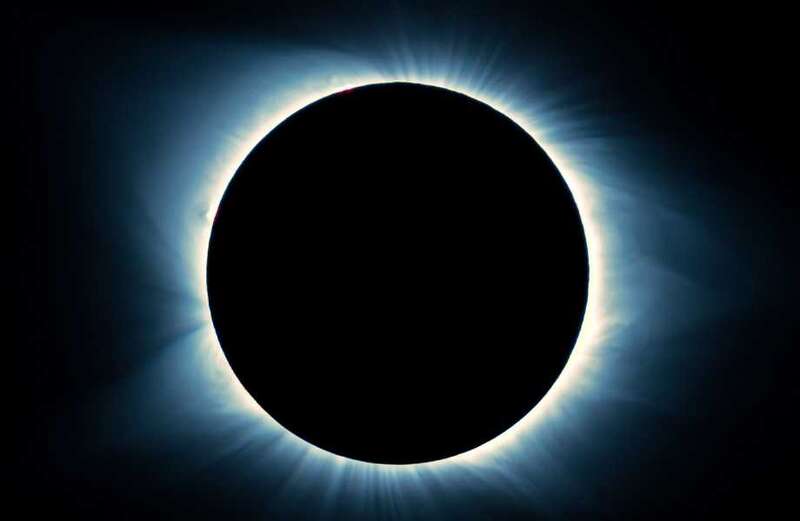NASA has plans to carry out a unique experiment next week: launching three rockets during the total solar eclipse.
This experiment aims to study the effects of a solar eclipse on Earth's ionosphere, between 37 to 190 miles above the surface.

The ionosphere is the part of the atmosphere that generates electricity from the sun's radiation and is where the auroras happen.
During a solar eclipse, the sudden drop in sunlight can cause changes in the ionosphere.
"If you think of the ionosphere as a pond with some gentle ripples on it, the eclipse is like a motorboat that suddenly rips through the water," Aroh Barjatya, a professor of engineering and physics at Embry-Riddle Aeronautical University, said in a 2023 NASA article.
 Charming UK village is 'UFO hotspot' with 'NASA scientists showing interest'
Charming UK village is 'UFO hotspot' with 'NASA scientists showing interest'
"It creates a wake immediately underneath and behind it, and then the water level momentarily goes up as it rushes back in."
These changes in the ionosphere can potentially interfere with both radio and satellite communications.
Overall, scientists understand little about how the brief moments of darkness influence the boundary between Earth's upper and lower atmosphere.
As such, Nasa hopes that by launching rockets into the eclipse's shadow, they can gain a better understanding of how these changes occur.
The experiment will involve launching three rockets from Nasa's Wallops Flight Facility on Wallops Island, Virginia at different points during the eclipse.
The first rocket will be launched before the eclipse begins, during the afternoon of April 8, 2024.
Meanwhile, the second rocket will be launched during the eclipse, which will happen between a 3:15 p.m. to 3:30 p.m EST window.
And the third rocket will be launched after the eclipse has ended.
"We are super excited to relaunch [the rockets] during the total eclipse, to see if the perturbations start at the same altitude and if their magnitude and scale remain the same," Barjatya said in a Nasa statement.
WHAT IS A SOLAR ECLIPSE?
A solar eclipse is a natural phenomenon when the sun, blocked by the moon, casts a shadow on the Earth.
 Astronomer leads hunt for Northern Lights 'sound' rarely heard in the aurora
Astronomer leads hunt for Northern Lights 'sound' rarely heard in the aurora
This partial or total blockage can only happen when the sun, moon, and Earth line up.
As the Sun’s rays are blocked, it gives people a chance to witness its fiery corona.
THE 2024 SOLAR ECLIPSE
The Total Solar Eclipse of 2024 will start on April 8, 2024, in Mazatlán, Mexico, at 10:51 am local time.
Then, the event will pass northeast through Newfoundland and Labrador in Canada, where it will begin to eclipse at 4:07 pm local time.
Totality — when the moon fully covers the sun and the sky goes dark – will occur over central Texas around 1:30 pm local time.
This will last up to 4 minutes and 26 seconds.
WHERE CAN I SEE IT?
A partial eclipse will be observable from the majority of the lower 48 states.
The total eclipse, however, will only be visible from Texas, Oklahoma, Arkansas, Missouri, Kentucky, Illinois, Indiana, Ohio, Pennsylvania, New York, Vermont, New Hampshire, and Maine.
If you're not in the path of totality, the event will be live-streamed by observatories across the country.
To view a solar eclipse, you must wear special glasses that are manufactured or approved by the International Organization for Standardization (ISO).
